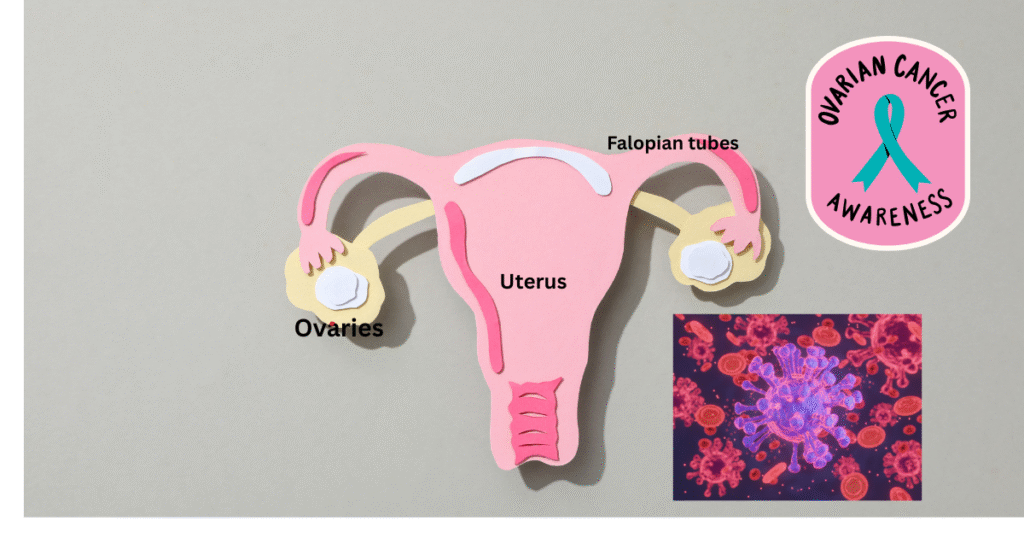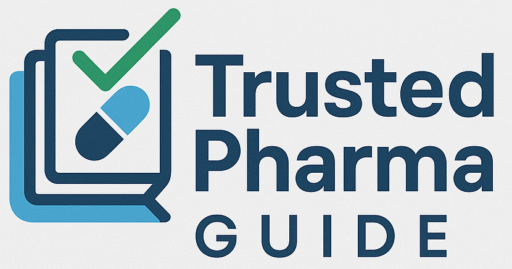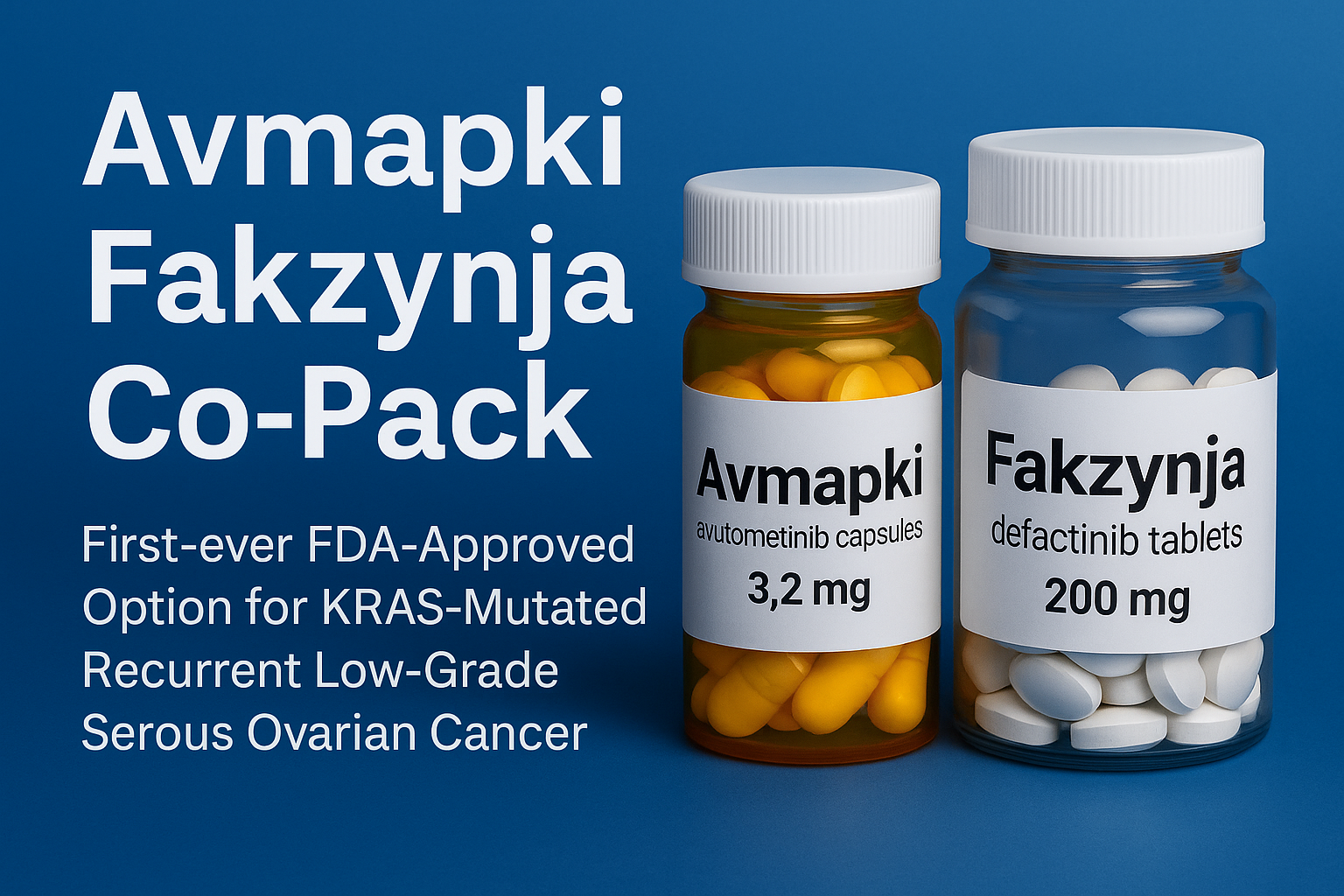Brand Name : Avmapki Fakzynja Co-pack
Generic Name : avutometinib and defactinib
Dosage form :Avmapki capsules , Fakzynja tablets .
Table of Contents
🔹 Introduction :
Ovarian cancer is one of the most challenging gynecologic cancers to treat, particularly when it comes to recurrent low-grade serous ovarian cancer (LGSOC) with KRAS mutations. On May 8, 2025, the FDA granted accelerated approval for a groundbreaking combination therapy: Avmapki Fakzynja Co-Pack. This marks the first-ever targeted treatment for this subtype of ovarian cancer.
The co-pack includes two oral targeted agents:
- Avmapki (avutometinib) – a MEK inhibitor
- Fakzynja (defactinib) – a FAK inhibitor
Together, they form a powerful duo aimed at suppressing cancer progression in patients who previously had limited options.
What is Low-Grade Serous Ovarian Cancer (LGSOC) ?
- This is a slow-growing (low-grade) cancer that begins in the epithelial cells lining the ovaries, fallopian tubes, or peritoneum.
- It is more often diagnosed in younger women (usually in their 40s and 50s) than HGSOC.
- It is considered less responsive to conventional chemotherapy, making treatment more challenging.

🔬 What Is Avmapki Fakzynja Co-Pack?
Avamapaki Fakzinja Co-Pak is a combination therapy developed to target KRAS-mutated recurrent low-grade serous ovarian cancer. Eligible patients must have received at least one prior systemic therapy.
It includes:
- Avamapaki (avutometinib): A MEK1/2 inhibitor that blocks the RAS/MAPK pathway.
- Fakzinja (defactinib): A focal adhesion kinase (FAK) inhibitor that inhibits cancer cell survival, adhesion, and drug resistance.
🧰 Mechanism of Action :
Avampak (avutometinib)
- Inhibits MEK1/2 in the RAS/RAF/MEK/ERK pathway
- Targets KRAS-driven cancer growth
Faczinja (defactinib)
- Inhibits focal adhesion kinase (FAK)
- Disrupts cell adhesion, survival, and metastasis
- Increases sensitivity to MEK inhibition
Combined mechanism: Dual blockade produces synergistic anti-tumor activity by disrupting both survival signals and the tumor microenvironment.
🔹 FDA Approval Highlights :
| Feature | Details |
|---|---|
| Approval Date | May 8, 2025 |
| Indication | KRAS-mutated recurrent LGSOC |
| Approval Type | Accelerated |
| Population Affected | ~6,000–8,000 women in the U.S |
This is the first FDA-approved option specifically for KRAS-mutated recurrent ovarian cancer.
📊 Clinical Trial Evidence (RAMP-201) :
The FDA approval is based on results from the RAMP-201 trial, a phase II clinical study.
Key Outcomes:
- Overall Response Rate (ORR): 44%
- Complete Response (CR): 3.5%
- Partial Response (PR): 40%
- Duration of Response (DOR): 3.3 to 31.1 months
These results show substantial and durable tumor reduction in a cancer that historically responds poorly to chemotherapy.
📅 Dosage and Administration :
| Drug | Dose | Frequency | Duration |
|---|---|---|---|
| Avmapki | 3.2 mg | Twice weekly (Days 1 & 4) | 3 weeks on, 1 week off |
| Fakzynja | 200 mg | Twice daily | 3 weeks on, 1 week off |
- Oral tablets taken with food
- Continue until disease progression or unacceptable toxicity
⚠️ Side Effects and Monitoring :
1.Common Side Effects (25%+):
- Fatigue
- Nausea
- Rash
- Diarrhea
- Muscle pain
- Edema
2.Laboratory Abnormalities:
- Elevated liver enzymes (AST/ALT)
- Increased creatine phosphokinase (CPK)
- Anemia
- Lymphopenia
3.Serious Risks:
- Eye toxicity: Visual disturbances, blurred vision (68% incidence)
- Rhabdomyolysis: Muscle breakdown (requires CPK monitoring)
- Liver toxicity: Periodic liver function tests needed
- Skin reactions: Rash, photosensitivity
Monitoring: Baseline and periodic eye exams, CPK, liver enzymes, and dermatologic assessments are recommended.
✅ Benefits of Avmapki Fakzynja Co-Pack :
- 📈 First targeted therapy for KRAS-mutated LGSOC
- 🌐 Oral, non-chemotherapy-based regimen
- ⏳ Durable responses in a heavily pretreated population
- ⚖️ Improved safety vs conventional chemo in this setting
- 🚀 Synergistic effect maximizes anti-cancer activity
Precautions For Avmapki Fakzynja:
1. Before Starting Treatment
Inform your doctor if you have:
- Liver or kidney disorders
- Heart problems or high blood pressure
- Bleeding disorders or are taking anticoagulants
- History of blood clots or stroke
- Let your doctor know if you’re pregnant, planning to become pregnant, or breastfeeding.
2. During Treatment
Regular blood tests may be required to monitor:
- Liver function
- Blood cell counts (WBCs, RBCs, platelets)
- Kidney function
Avoid:
- Alcohol (may worsen liver toxicity)
- Grapefruit juice (may interfere with drug metabolism)
Use effective contraception during and for a period after treatment.
Report immediately if you notice:
- Severe fatigue, easy bruising, or infections
- Vision changes or persistent headaches
- Chest pain or shortness of breath
- Allergic reactions (rash, swelling, itching, difficulty breathing)
3. Vaccination Caution
Live vaccines (e.g., measles, yellow fever) should be avoided during therapy due to immunosuppression risks.
🔧 Conclusion :
The approval of Avmapki Fakzynja Co-Pack represents a historic milestone in ovarian cancer care. As the first treatment for KRAS-mutant recurrent LGSOC, it offers new hope for thousands of women facing limited options. After menopause women faces problems .With promising clinical results and a manageable safety profile, this dual therapy is poised to transform personalized cancer care.
Patients should consult their oncologist to determine eligibility, monitoring requirements, and potential benefits of this novel regimen.
❓ FAQs
Q1: Who can take Avmapki Fakzynja Co-Pack?
Q2: How is the drug taken?
Fakzynja: 200 mg orally twice daily for three weeks in a 4-week cycle
Q3: Is the treatment curative?
Q4: What should I monitor during treatment?
Liver function
Muscle enzymes (CPK)
Skin and gastrointestinal symptoms
Q5: Can pregnant women use this drug?
Disclaimer: This blog post is for informational purposes only and does not constitute medical advice. Always consult a qualified healthcare professional before making any medical decisions.

